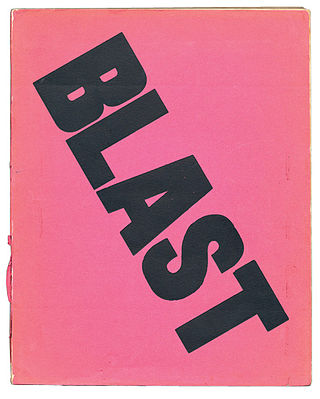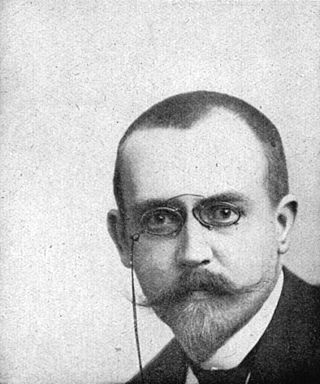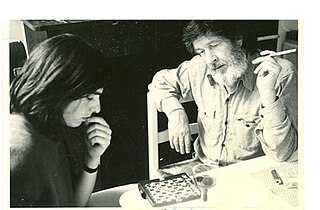Related Research Articles

Dada or Dadaism was an anti-establishment art movement that developed in 1915 in the context of the Great War and the earlier anti-art movement. Early centers for dadaism included Zürich and Berlin. Within a few years, the movement had spread to New York City and a variety of artistic centers in Europe and Asia.

In the arts and literature, the term avant-garde identifies an experimental genre or work of art, and the artist who created it, which usually is aesthetically innovative, whilst initially being ideologically unacceptable to the artistic establishment of the time. The military metaphor of an advance guard identifies the artists and writers whose innovations in style, form, and subject-matter challenge the artistic and aesthetic validity of the established forms of art and the literary traditions of their time; thus, the artists who created the anti-novel and Surrealism were ahead of their times.

The Hogarth Press is a book publishing imprint of Penguin Random House that was founded as an independent company in 1917 by British authors Leonard Woolf and Virginia Woolf. It was named after their house in Richmond, in which they began hand-printing books as a hobby during the interwar period.

Blast was the short-lived literary magazine of the Vorticist movement in Britain. Two editions were published: the first on 2 July 1914 and featured a bright pink cover, referred to by Ezra Pound as the "great MAGENTA cover'd opusculus"; and the second a year later on 15 July 1915. Both editions were written primarily by Wyndham Lewis. The magazine is emblematic of the modern art movement in England, and recognised as a seminal text of pre-war 20th-century modernism. The magazine originally cost 2/6.

Daniil Ivanovich Kharms was an early Soviet-era Russian avant-gardist and absurdist poet, writer and dramatist.

OBERIU was a short-lived avant-garde collective of Russian Futurist writers, musicians, and artists in the 1920s and 1930s. The group coalesced in the context of the "intense centralization of Soviet Culture" and the decline of the avant garde culture of Leningrad, as "leftist" groups were becoming increasingly marginalized.
3:AM Magazine is a literary magazine, which was set up as 3ammagazine.com in April 2000 and is edited from Paris. Its editor-in-chief since inception has been Andrew Gallix, a lecturer at the Sorbonne.
Sub Rosa is a record label based in Brussels specializing in avant-garde music, electronic music, world music and noise music. Directed by Guy-Marc Hinant and Frédéric Walheer, Sub Rosa has released over 250 titles of experimental, drone music, noise music, Musique concrète, ritual music and film music. The label has released archival material related to prominent twentieth-century avant-garde figures such as Marcel Duchamp, William S. Burroughs, James Joyce, and Kurt Schwitters. Sub Rosa also releases material from a number of important electronic music composers, such as ; and traditional music from around the world in anthologies of Inuit sound, the Master Musicians of Joujouka, Tibetan music and Bhutanese music, recorded by John Levy)

Paul Karl Wilhelm Scheerbart was a German author of speculative fiction literature and drawings. He was also published under the pseudonym Kuno Küfer and is best known for the book Glasarchitektur (1914).
John Mackenzie Calder was a Scottish-Canadian writer and publisher who founded the company Calder Publishing in 1949.

Thermoeconomics, also referred to as biophysical economics, is a school of heterodox economics that applies the laws of statistical mechanics to economic theory. Thermoeconomics can be thought of as the statistical physics of economic value and is a subfield of econophysics.
Les Belles Lettres, founded in 1919, is a French publisher specialising in the publication of ancient texts such as the Collection Budé.

Arcadia Publishing is an American publisher of neighborhood, local, and regional history of the United States in pictorial form. Arcadia Publishing also runs the History Press, which publishes text-driven books on American history and folklore.
Calder Publications is a publisher of books. Since 1949, the company has published many books on all the arts, particularly subjects such as opera and painting, the theatre and critical and philosophical theory. Calder's authors have achieved nineteen Nobel Literature Prizes and three for Peace.

The sociology of literature is a subfield of the sociology of culture. It studies the social production of literature and its social implications. A notable example is Pierre Bourdieu's 1992 Les Règles de L'Art: Genèse et Structure du Champ Littéraire, translated by Susan Emanuel as Rules of Art: Genesis and Structure of the Literary Field (1996).

Boni & Liveright is an American trade book publisher established in 1917 in New York City by Albert Boni and Horace Liveright. Over the next sixteen years the firm, which changed its name to Horace Liveright, Inc., in 1928 and then Liveright, Inc., in 1931, published over a thousand books. Before its bankruptcy in 1933 and subsequent reorganization as Liveright Publishing Corporation, Inc., it had achieved considerable notoriety for editorial acumen, brash marketing, and challenge to contemporary obscenity and censorship laws. Their logo is of a cowled monk.

The Last Futurist Exhibition of Paintings 0,10 was an exhibition presented by the Dobychina Art Bureau at Marsovo Pole, Petrograd, from 19 December 1915 to 17 January 1916. The exhibition was important in inaugurating a form of non-objective art called Suprematism, introducing a daring visual vernacular composed of geometric forms of varying colour, and in signifying the end of Russia's previous leading art movement, Cubo-Futurism, hence the exhibition's full name. The sort of geometric abstraction relating to Suprematism was distinct in the apparent kinetic motion and angular shapes of its elements.
Wakefield Press may refer to:
Raduga Publishers was a Soviet publishing house of innovative children's books, which has been described as "one of the most important book publishers of its type" during the early twentieth century.

Marc Dachy was a French art historian whose speciality was Dadaism and Surrealism, an art curator, a translator, lecturer and publisher. The Prix des Créateurs was awarded to Dachy in 1978 by Eugène Ionesco.
References
- ↑ "Publisher Homepage". Wakefield Press. Retrieved 1 September 2017.
- ↑ "Interview with Editor Marc Lowenthal". Entropy. Entropy Magazine. Retrieved 1 September 2017.
- ↑ ""Obscurer, Obscurer": Independent Publisher Wakefield Press on Translating Forgotten Classics". Bookwitty. Retrieved 1 September 2017.
- ↑ Baran, Ian. "Must-Reads From Wakefield Press, Part 1". New York Public Library. Retrieved 1 September 2017.
- ↑ ""Obscurer, Obscurer": Independent Publisher Wakefield Press on Translating Forgotten Classics". Bookwitty. Retrieved 1 September 2017.
- ↑ Somers, Erin. "Laughs in Translation". Ploughshares Blog. Emerson College. Retrieved 1 September 2017.
- ↑ Cheesman, Tara. "WOMEN IN TRANSLATION MONTH: MOVING FORWARD". Bookriot. Retrieved 1 September 2017.
- ↑ se:Imagining science, worldcat.org. Retrieved 23 December 2024.